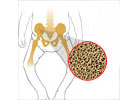According to U.S. researchers, brain defects occur in kids who had low levels of iron as infants. The defects persist in spite of early treatment.
According to U.S. researchers, brain defects occur in kids who had low levels of iron as infants. The defects persist in spite of early treatment.
The study conducted on 185 Costa Rican teens was published in the Archives of Pediatrics and Adolescent Medicine. It reveals the need for early nutrition in infants. The findings showed that lower the levels of iron; the worse are the learning, memory and thinking functions."If direct and indirect effects of early iron deficiency on the brain disrupted or delayed basic developmental processes, there could be a snowball effect," said Dr. Betsy Lozoff of the University of Michigan in Ann Arbor, who led the study.
Lozoff and her team studied the 185 children starting at the age of one. The National Institutes of Health funded this study. The kids were screened for iron deficiency at the beginning of the study. Their learning, thinking and memory functions were monitored by regular, age-appropriate cognitive tests. Though, the iron deficiency in the kids was detected early and treatment was given, they never made up to the normal levels.
A comparative study of 53 chronic iron deficiency babies with 132 normal kids was carried out. The middle-class family kids showed the same difference in cognitive abilities throughout, whereas, in the lower socioeconomic status families, the cognitive skills gap widened significantly from 10 points in infancy to 25 points at age 19 years.
Nearly 25% of the kids across the globe are anemic.
Another study in the same journal revealed that iron deficiency is more prevalent among kids past one year of age who drank cow’s milk from bottles than those who drank from cup.
Advertisement
"The bottle may act as a vehicle for excessive milk consumption, which may compromise iron absorption or the intake of iron-rich foods or juices," the researchers wrote.
Advertisement
GYT











